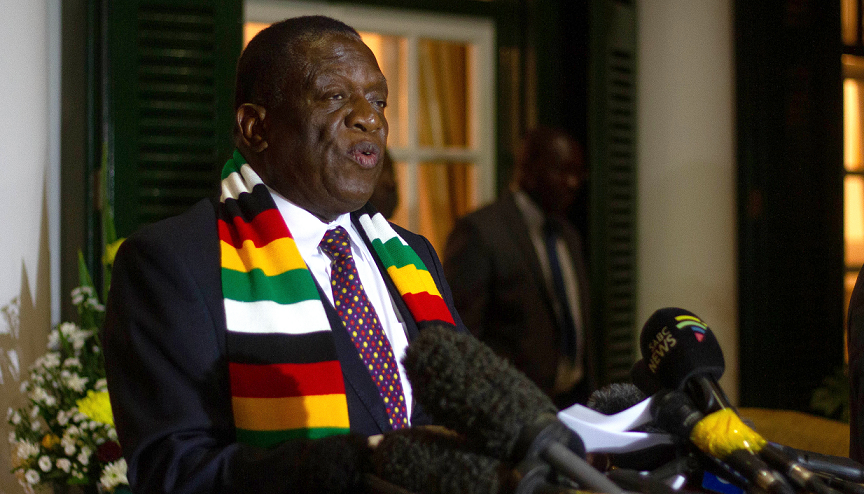
Mnangagwa warns critics sabotaging Zimbabwe’s economic recovery

Zimbabwean President Emmerson Mnangagwa sent out a stern warning that his administration will deal with what he termed as malpractices eroding its attempts to address Zimbabwe’s economic crisis.
Mnangagwa, who addressed the nation in a televised speech in the capital, Harare, said the “end is coming” for those bent on pulling Zimbabwe’s economy down.
“We shall not allow a situation where our people live in chronic insecurity, lack and deprivation. It has become apparent that in our midst there are wolves in sheep’s clothing,” he said.
Two weeks ago, Mnangagwa blamed Zimbabwe’s currency problems on political critics and greedy private sector players.
He said that the currency was under attack from businesses that were constantly raising prices and this was part of a wider political scheme against his government.
Zimbabwe’s local currency has plunged on the black market fuelling price increases and pushing inflation to 765 percent.
Zimbabweans have grown increasingly frustrated with the direction the country has taken since the ousting of longtime leader Robert Mugabe in 2017 following a military takeover and days of civilian protests.
Mnangagwa, who succeeded him, has faced a number of political and socio-economic challenges in the subsequent years.
The country’s economy, facing one of its worst crises in decades, is grappling with runaway inflation and spiralling commodity and fuel prices amidst a food shortage. Additionally, the nation’s public sector has faced a number of strikes, particularly by medics due to low salaries and poor working conditions.
The country’s energy regulator said that the country’s fuel prices are set to go up by as much as 152 percent on Wednesday after the government removed a fixed exchange rate in place since March.
Even as the government struggles to address all these problems, it still has to contend with the COVID-19 pandemic and a surge in malaria cases.






